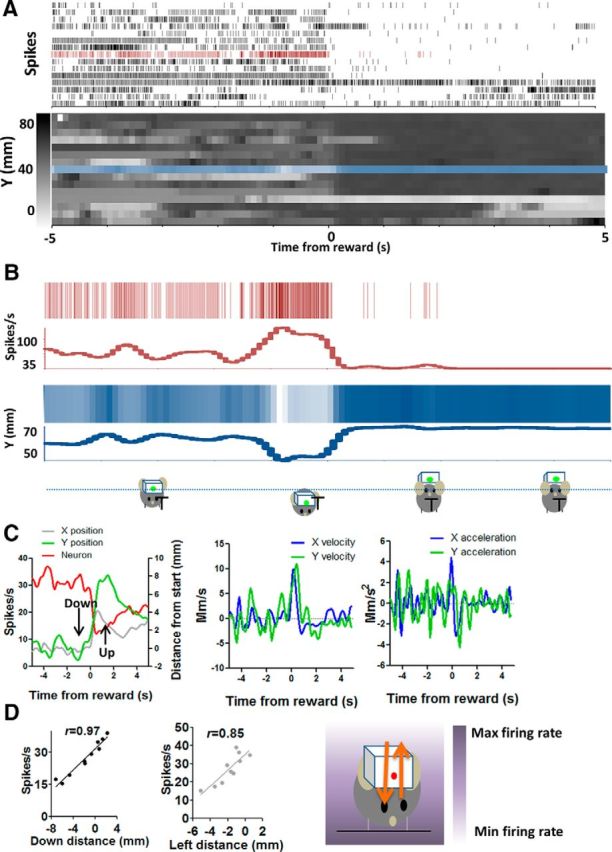Figure 13.

Down+ (Y−) neuron increases firing during downward movement and decreases firing during upward movement. A, Detailed illustration of the correlation between firing rate and y-coordinates on a trial-by-trial basis. Neural activity and y-coordinates from 10 consecutive trials are shown. Each row represents a single trial. B, Neural and position data from a single trial are selected and compared. C, Average firing rate changes and changes in different movement parameters. The plots on the right show velocity and acceleration data for the same movements. D, Using an egocentric reference frame, the direction of firing rate changes corresponds to the direction of movement (p < 0.001). There was therefore a negative correlation between firing rate and raw y-coordinate value but a positive correlation between firing rate and distance in the downward direction (p < 0.001). The correlation with the nonpreferred Cartesian axis is also shown. In this case, the correlation with distance traveled in the leftward direction is also high because the movement is nearly diagonal, so that the x and y position changes are similar. However, the correlation with y is still considerably higher, and trial-by-trial examination of the data confirms that this neuron is selective for the y component of the position vector. The diagram on the right shows the gradient of firing rate in relation to position coordinates.
